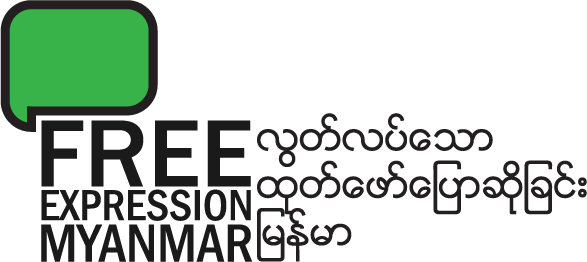Myanmar internet freedom declines for 2nd year running
Myanmar’s nascent internet freedom has declined in 2018 for the second year in a row under the NLD according to US-based Freedom House’s annual report launched today and researched by FEM.
Myanmar’s score deteriorated from 61 to 63 in 2017 and worsened again to 64 in 2018. Internet freedom in Myanmar is now almost as bad as under Thailand’s military government, and significantly worse than the authoritarian regime in Cambodia.
The report gives credit to the NLD government for facilitating impressive 29% year-on-year growth in internet access including via new 4G networks. Private telecoms companies, notably mobile phone operators but also newer MiFi suppliers and infrastructure builders, have pushed access forward in leaps and bounds. Faced with real competition, state-owned MPT has shrunk its market share and the state in reaction to losing control has been given a telecoms licence to the military-backed Mytel to even the balance.
Where Myanmar’s internet freedom has significantly deteriorated this year is in regard to content limitations and violations of user rights.
Free Expression Myanmar, which conducted research for the report, found that while the government has continued to refrain from applying direct limitations on content such as blocks or filters, it instead relies on a much larger and more entrenched system of control.
This system is a massive attempt to control information through the dominance of certain ideas and the self-censorship of others. The dominance of pro-state content has become pervasive online. Journalists, online personalities, and ordinary users face a range of pressures to agree with official narratives on matters not only on Rakhine, but spreading to patriotism, military, corruption, big business, conflict, and certain “sensitive” social and religious issues. Both the government and the military have invested significant resources in spreading their own narratives via Facebook.
Where pressure to conform and information manipulation fail, Myanmar’s laws can be relied upon. Arbitrary use of criminal laws, such as 66(d), have continued to be used over the past year to silence dissent and alternative opinions. The government, instead of reforming Myanmar’s old anti-democratic laws, spent time making new ones. For example, not happy with justfour laws criminalising defamation, they adopted a fifth under the cloak of protecting privacy.
Where the state should have reacted, such as in relation to hate speech and allegations of organised disinformation online, it has taken only regressive steps. Instead of publicly countering hate speech and freeing state-controlled television and radio so that the public can start trusting them, the government has invested millions in a Big Brother-style “Social Media Monitoring Team” to carry out Facebook surveillance. A recent New York Times investigation has found that the military has had a team for years too.
Facebook has done no better in Myanmar. The report highlights how, after years of receiving media and civil society complaints culminating in the UN Fact Finding Mission’s recent allegations, Facebook has taken confusing steps to address hate speech and disinformation. Notorious for the ban on “kalaw”, a derogatory term for Muslims of South Asian descent, which meant that users could no longer use related words meaning for example “chair” and “bean”, Facebook’s subsequent bans have been far more disturbing. Journalists have had their accounts taken down for writing about Wirathu and Ma Ba Tha. Human rights defenders have been banned for constantly mentioning atrocities in Rakhine state. Activists flagging up acts of terrorism have been banned for supporting those very acts of terrorism.
Increasing access to the internet in Myanmar was virtually an open goal for the USDP and NLD governments - a success story waiting to happen. It’s also fair to say that many of the leaps forward in internet access are the result of the previous USDP government’s legal and regulatory reforms. Midway through the NLD’s first term in office, their performance so far does not bode well for next year’s report. It is fair to say that Facebook’s actions have played some part in declining internet freedom in Myanmar, but the majority of the problem, and therefore the potential solution lies in the hands of the NLD.
မကြာမှီလာမည်!
